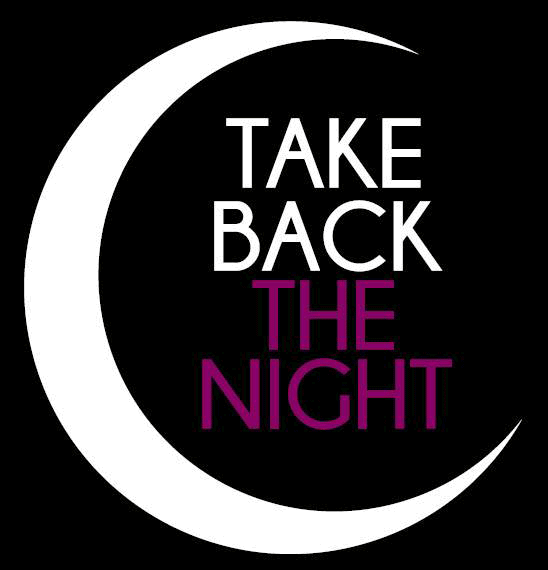Annual Take Back the Night March

Open for all, the Take Back the Night March intended to raise awareness about sexual assault and sexual violence on Tuesday, April 17. The march, organized by The Network, functioned as a way to make students’ voices heard and allowed survivors of sexual violence and allies to join together and walk in solidarity from the O’Connor Campus Center (COOP), down Broad Street, to Frank Dining Hall.
Students created posters to carry before the march at the COOP. Some of the messages on the posters included: “Bodies are not battlegrounds,” “My body isn’t a toy, my body isn’t a joke, my body isn’t yours,” “Embrace your voice,” and “Our bodies, our minds, our power.” The march itself was led by student organizers senior Sarah McDaniel and sophomores Gracie Morgan and Elle O’Brien.
McDaniel provided insight on organizing the march.
“The co-leaders of The Network chose a date that works for all of us and doesn’t [conflict with] any significant events happening on campus,” McDaniel said. “Once we chose the date, we told relevant campus groups, such as Haven and WMST [Center for Women’s Studies]. We also created a poster, campus calendar event and Facebook event to advertise. For the actual march, we used chants from previous years, created posters and solidify the route.”
Many of the chants during the march emphasized justice for survivors, intersectionality, inclusivity and a call to action to end sexual violence. Some of the chants included: “Yes means yes, no means no, whatever we wear, wherever we go,” “Old, young, black, white, all of us take back the night” and “We are women, we are men, together we fight to take back the night.”
During the march, the organizers arranged stops along the way in order to allow march attendees to speak and seek solidarity for their personal messages. The march was followed by a speakout at the Center for Women’s Studies intended for survivors of sexual violence and for those who have personal experiences but do not identify with the term “survivor” to serve as a closed healing event.
O’Brien reflected on her overall experience being a part of the march.
“The march is a testament to the power of community. I think that too often people feel like they are alone in their hurt and alone in their healing, and what’s so empowering about the march is that you are surrounded by people advocating for the same things you are,” O’Brien said. “My hope is that the march felt to others like a moment of love and of community.”
McDaniel expressed similar sentiments regarding her thoughts on the march and mentioned the importance of having a safe space on campus.
“The march is a great way for survivors and allies to come together to raise awareness on issues of sexual violence on campus,” McDaniel said. “The march allows people to be anonymous in the crowd of people. This could be especially empowering for someone who doesn’t identify with the term survivor but has experienced sexual violence.”
First-year Caraline McDonnell reflected on how it felt to participate in the march.
“One of the most memorable moments was marching through the library with our voices ringing out [because] there was no doubt that we were being heard,” McDonnell said. “It felt so empowering to speak our minds.”
The student leaders emphasized that addressing the issue of sexual assault on campus goes beyond the march. Due to April being Sexual Assault Awareness Month, The Network also arranged several other events, such as a brown bag. During the rest of the academic year, those involved in organizations such as Haven, WMST and The Network strive to support survivors and spread awareness.
“It is important for colleges to continue to make conversations about sexual assault a priority. Too often, these conversations are kept to only certain pockets of campus and exist in echo chambers,” O’Brien said. “Something I love about the March is that it brings the conversation out of hiding and into the heart of campus. I think that continuing to bring these conversations to the front of our minds is an important first step.”
Contact Celine Turkyilmaz at [email protected].
Celine Turkyilmaz is a senior from Chicago, Illinois concentrating in English. She's previously served as a copy editor, news editor and reporter. She...



